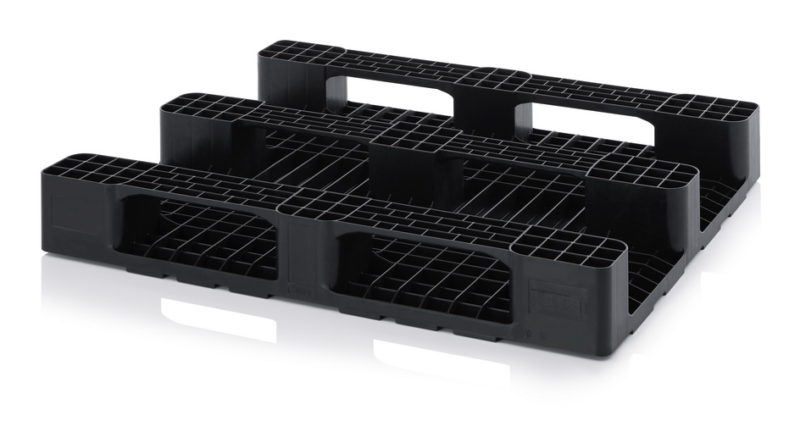Eco-friendly Supermarket Uses Plastic Pallets For Food Waste
18 Jan 2018
There is no doubt that food waste cannot be entirely avoided. However, the current issues with food waste – at a distribution and retail and household level – are truly shocking, with seven million tonnes of being thrown away every year. The manufacturing and retail distribution chain also throws away a further 1.9 million tonnes of food waste, much of which is unavoidable, and the food industries are being heavily criticised for wasteful packaging.
With global population growth a topic of real concern for sustainable food production, the world’s governments are coming together to find solutions to the issue of waste and the need to be able to reliably feed every global citizen. The pressure is on for businesses that show insufficient progress towards food waste minimisation and for those that insist on using environmentally unfriendly methods of packaging.

A Forward-Thinking Brand
ALDI is one brand that is moving ahead, however, towards a more sustainable and eco-friendly manner of operation by seeking to rework the way that it handles its food and switching its logistics away from single-use plastic pallets to more eco-friendly packaging alternatives that are recyclable and reusable. The German discount retailer has more than 500 stores in the UK, all of which must follow strict guidelines and standards for food management and the minimisation of food disposal.
Working with Charity
Wherever it can, ALDI seeks to donate food that is fit for human consumption to the FareShare charity for onward distribution to those in need. Some food cannot be passed on for consumption because it has passed its expiry date, but the company makes sure that it doesn’t go to landfill. Instead, it is used to create biogas to generate clean energy for the National Grid.
Better Logistics Solutions
At the same time, ALDI has switched away from old-fashioned plastic packaging and begun to use eco-friendly alternatives such as the Dolav 800 x 1200. A spokesperson for the company explained that ALDI was working hard to be a responsible retailer and that this meant seeking ways to operate in an increasingly ‘green’ manner. As part of this drive, they had switched to using Dolav boxes, which are solid, free from leaks and easy to wash and to keep clean. They are also very robust with a single modular one-piece moulded design that means that they don’t easily break and are compatible for loading and storage with most standardised systems.
Along with eco friendly plastic pallets, these boxes are ideal for holding and transporting waste food that is still suitable for consumption to a charity. Equally, they can be used to transport food which has passed its expiry date to the biogas-generation plant, which produces clean electricity to send to the National Grid. In adopting these greener new measures, the brand is demonstrating the vital role that corporations can take in creating a greener, more sustainable future with less waste and access to food for all.
